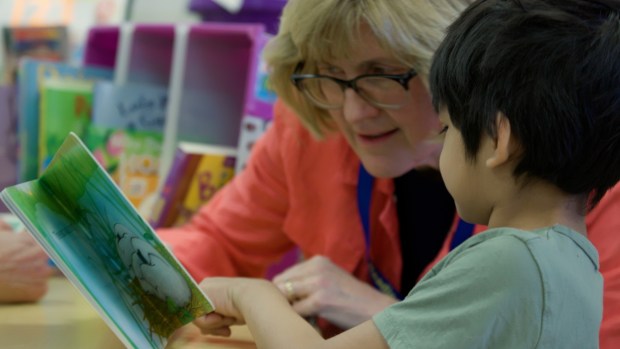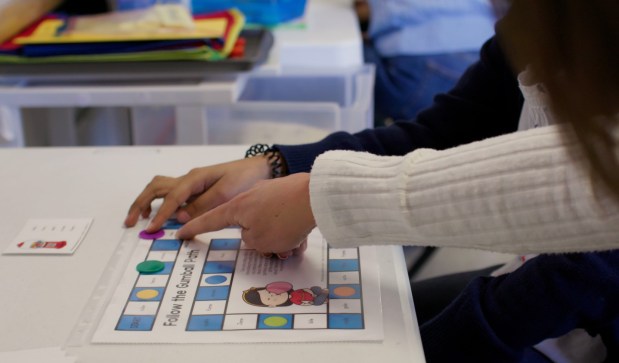As the school year comes to a close, a group of local volunteer tutors is already looking ahead to the fall and the goal of helping improve the literacy rate for kindergarten-through-second-grade students.
The group plans to do so by targeting children below the 25th percentile in reading on Illinois standardized assessments.
The Reading Power Program was established in 2003, and has grown to encompass 15 programs in a dozen schools in Lake and Cook counties. The program summary for 2024-2025 shows that more than 450 volunteer tutors worked with more than 800 students.
Lake County students with reading deficiencies at eight Waukegan, North Chicago and Zion schools are benefiting from individualized attention and one-to-one instruction. The sessions take place within the classroom during the school day, and during that specific grade level’s literacy intervention time slot.
Most tutoring programs take place outside of the school day at other locations, which makes RPP’s approach unique.
The goals for kindergarten-through-second-grade programs are to accelerate reading fluency, while ending the year approaching, or achieving, grade-level benchmarks. A parallel preschool program fosters oral language development, listening comprehension and a “love of books using high-quality literature and language-rich conversations.”
“During the 2023-2024 school year, our data showed 72% of Reading Power students met their grade level expectations, and also increased an average of five book levels,” said Mary Therese Barkhausen, the program’s marketing and communications manager.
The program was founded by Mary Jane Hender, a reading specialist with a doctorate in education, and the Rev. Gordon Butcher, a Presbyterian minister and reading activist. The Lake Forest-based organization carries a non-profit designation in the area of youth development.
“What began as one woman’s vision has blossomed into a thriving organization,” said Kathy McFarland, the program’s board chairperson. “Reading Power will forever inspire, motivate and leave a lasting impact on me. We are on a mission to change the future … and you know what? We are doing just that.”
An impact statement from the group said first- and second-grade students are tutored for 40 minutes, up to four days per week, in a dedicated Reading Power space. In each tutoring session, the child reads four books, writes a sentence in their journal, engages in word work, and learns high-frequency words.
A familiar book is sent home each night for practice, along with a student-selected library book. A standardized lesson plan is used for each session and individualized daily. During each session, the student’s performance is assessed, and a new lesson plan is prepared, allowing the next day’s tutor to pick up where instruction left off.
“At Reading Power, our programming is set up so that our tutors do more than teach. They build meaningful, lasting relationships with students,” said Kristin Fine, the director of programs. “They serve as mentors, both in the classroom and beyond. These one-to-one connections foster trust and support.”
This year was viewed as a pivotal point for the program in actively addressing critical and urgent literacy needs by implementing growth initiatives across additional communities in need, adding three schools.
“With a dual focus on excellence and growth, we aim to not only maintain the highest standards of impact but also leverage additional resources to extend our reach,” said Lisa Bulzoni, the program’s CEO. “Our true goal is to transform as many lives as possible, ensuring that every child has access to the literacy support they deserve.”






